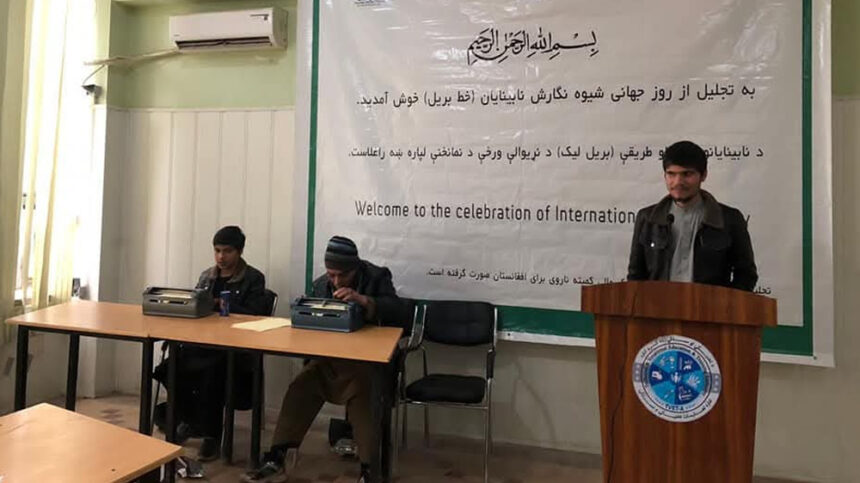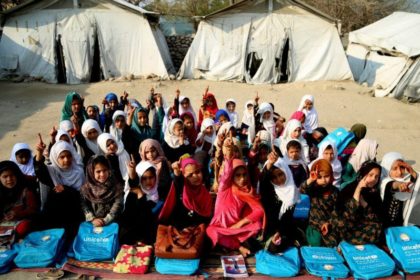RASC News Agency: Visually impaired individuals in Balkh have expressed frustration over the lack of access to Braille books and the absence of employment opportunities, which they say severely limits their participation in society. Marking World Braille Day, members of this community highlighted the unavailability of Braille-printed educational materials and other essential resources. On Saturday, January 4, they gathered in Mazar-e-Sharif to voice their concerns about the lack of educational and professional opportunities available to them.
This comes at a time when Afghanistan faces unprecedented economic challenges. Widespread poverty and unemployment have driven thousands of citizens to flee the country in search of better livelihoods. Since the Taliban’s return to power, economic conditions have deteriorated significantly, with soaring poverty and joblessness even leading some individuals to take their own lives out of desperation. During the event, participants demanded the establishment of dedicated Braille teaching facilities in schools and universities. They also called for inclusive measures allowing visually impaired individuals to participate in the national university entrance exam (Kankor).
A local source reported that the visually impaired community in Balkh has appealed to the Taliban administration and international organizations for support. They have specifically called for initiatives to create sustainable employment opportunities for individuals with disabilities. The Afghanistan Association for the Disabled estimates that approximately 18,000 individuals with blindness or visual impairments live in Balkh Province, including 3,000 women. These individuals have repeatedly complained about their exclusion from educational services and the lack of access to employment opportunities.
Afghanistan, under Taliban rule, continues to face an economic crisis marked by extreme poverty and widespread unemployment. Many young people have left the country, fleeing harsh conditions. Meanwhile, the World Food Programme reports that over 15 million Afghanistanis now live below the poverty line, underscoring the depth of the humanitarian and economic crisis gripping the nation.






